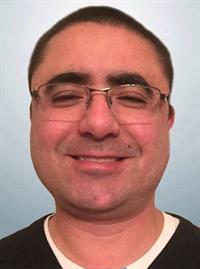What To Expect From Iraq’s May 2018 Elections
 5/5/2018 11:47:52 AM
5/5/2018 11:47:52 AM
3225 View
Joel Wing
+
-
In May Iraq will hold parliamentary elections for a new government. Prime Minister Haidar Abadi is the odds on favorite to return to office, but there have been some major changes in Iraqi politics. Who wins the most votes is only half the story as the formation of a new administration is the most important part of the process, and where the current status quo is likely to be maintained.
There are a plethora of candidates and parties running in this year’s election, but the major parties are the ones that really matter as they will hold the most seats in parliament necessary to make a new government.
The Dawa Party, which has held the premiership since 2005 decided to run as two lists this year, which is actually illegal. Prime Minister Haidar Abadi created his own Nasr list made up of his section of Dawa along with some other parties. Abadi is running a nationalist campaign based on his victory against the Islamic State, fighting corruption, and re-imposing federal control over Kirkuk and the disputed territories after the September 2017 Kurdish referendum. Nasr is running in all 18 provinces and has Shiite, Sunni and Kurdish politicians. Abadi is likely to win a plurality, and return as the premier, but his campaign has not been without problems. The premier attempted to align with the Fatah list made up of pro-Iran Hashd groups even though they have been one of his greatest critics. They made an alliance that lasted all of one day before breaking apart. Abadi also tried to make a deal with Vice President Nouri al-Maliki who runs the other part of Dawa, is also close to Tehran, and is one of his main opponents. Both of these moves showed that the prime minister was more interested in making short term deals to ensure that he would stay in power than sticking to his campaign rhetoric. Some Iraqis have also complained about his list containing too many party hacks amongst its list of candidates.
Fatah is likely to be the other main vote getter come May. It is led by Badr’s Hadi Amiri and made up of around 20 Hashd al-Shaabi groups. They will be playing upon their popularity the Hashd gained during the war against the Islamic State. The Hashd has the image of common people taking up the gun to defend the country against the militant threat and it includes both Sunni and Shiite elements. There have been a few reports that Iran is hoping to take the premiership away from the Dawa. That would include Fatah making deals with other parties such as Maliki’s and perhaps one or two of the major Kurdish parties that are angry at Abadi over his punishing them after the September referendum. Amiri would be a likely contender for the premiership, but they might throw their weight behind someone else to oppose Abadi.
The Kurds used to be one of the kingmakers in Iraq because they had a united bloc in Baghdad, but that is no longer true. The two main parties the Kurdistan Democratic Party and the Patriotic Union of Kurdistan are running separately this year, and the opposition has formed its own list as well. The parties are all divided over the fallout from the independence referendum as well as the KDP-PUK administration of Kurdistan. If they wanted to make sure they had the strongest voice in creating a new administration and holding onto their positions in the federal government they would all unite after the vote into a single bloc. While the KDP and PUK might be able to come back together, the opposition is unlikely to join them allowing Abadi and others to play divide and conquer with them.
Sunnis have been split since 2003 and remain so. Speaker of Parliament Salim Jabouri, Vice President Iyad Allawi and Salah al-Mutlaq head a pro-Abadi list, while Vice President Osama Nujafi and Jamal Karbuli run another that have been critical of the PM.
These pre-election alignments are a bit different from previous elections, and yet very similar. On the one hand, Iraqi nationalism is making a comeback haven risen during the war against the Islamic State. People like Abadi are trying to capitalize on that and making themselves out to be representing all of Iraq instead of simply being a Shiite politician. At the same time, all the major ethnosectarian groups have run separate, competing parties since 2010, and continue to do so. That’s the reason why the election results are only the first step, and forming a government is actually much more important.
Every administration since 2005 has been a national unity one, and that’s likely to continue this year. With Abadi being the main vote getter he will first have to negotiate with the Shiite parties to stand behind him and form a majority, before going to the Sunnis and Kurds. If the stories are true that Iran will stand in the way of Abadi returning to power, this might be far more difficult than he anticipates. Either way, Abadi will have to take part in extended negotiations with all the parties and offer them various ministries and other positions to get them to back another term. That’s the reason why every election year there are different party formations, but the government ends up looking very much the same. All the parties, despite their differences join together, get their fiefdoms, and continue to run things like they did before.
--
Joel Wing is an analyst and blogger at Musings On Iraq which was established in June 2008.